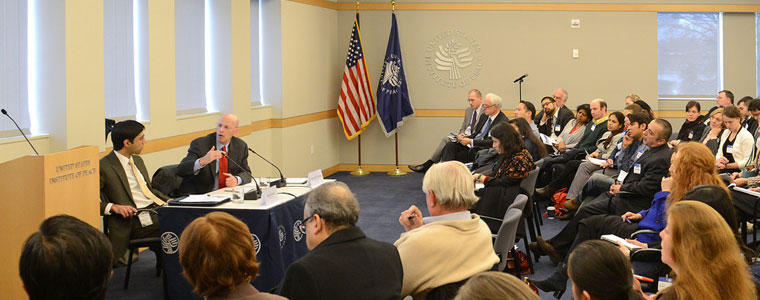Development, Social Sector and Pakistan’s Long-term Stabilization Challenges
USAID Mission Director for Pakistan, Greg Gottlieb, spoke at USIP on the state of the Pakistani economy, and the link between development, the social sector and stabilization.

The Pakistani state continues to face difficult development challenges. Implementing a tighter fiscal policy to meet the conditions set under the IMF's $6.6 billion loan, the government of Pakistan has reduced its development budget. While the link between development and stabilization is often made, seldom do we expand the discussion of ‘development’ to the social sector. This arena tends to become the first casualty in tight fiscal environments with underappreciated repercussions for long-term stability of a country. Do we need a rethink on the social sector-stabilization link? Does external assistance have a role and shared responsibility in helping bolster progress in this sector?



